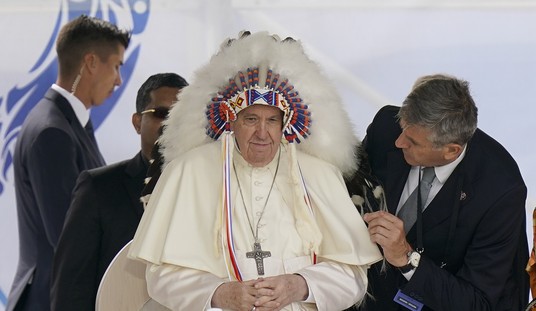According to a Gallup poll released today, 92 percent of Americans say “yes” when asked the basic question, “Do you believe in God?” In nearly 70 years, that belief has remained relatively stable. In 1944, when Gallup first asked the question, 96 percent said yes.
That’s not to say American believers experience no doubts. Respondents wavered a little bit when given more than just “yes” and “no” choices. Fourteen percent, for example, said they think God “probably exists, but have a little doubt.” An additional 5 percent said they think God “probably exists, but have a lot of doubt.” Even so, a robust 73 percent still said they are “convinced” God exists.
Not surprisingly, belief varied among different age groups and across regions. Among my peers, just 84 percent say they believe in God. Southerners are 10 points more likely to say they believe in God than Easterners.
To me, this poll comes as hopeful news — a much-needed reminder that the basic fabric of American belief hasn’t changed all that much, countless cultural signs to the contrary. But I’m comforted by more than just the continuity of the tradition. I’m comforted, too, by what it suggests Americans seek. Maybe this is an extrapolation, but it seems to me the American readiness to admit a belief in God says something about our willingness to risk foolishness for the sake of truth — a worthy risk, I think.
Maybe I’ve been in doubt as to how open the American mind actually is to truth because I’m a relatively recent college graduate — and, all too often, I fear, the university experience encourages the deconstruction of “social constructs” more than it encourages the courageous acceptance of reality “in the totality of its factors.”
Or maybe I’ve just been thinking along these lines since I read the article, “Thinking Critically About Critical Thinking,” in this month’s issue of First Things. R.R. Reno writes:
Clear-minded and scrupulous analysis clears the underbrush of error — a very good thing to do — but it cannot plant the seeds of truth; it burns away the weeds but won’t fertilize the fields. To do so we must be receptive rather than cautious. We need to develop the habit of credulity, which literally means the capacity and willingness to accept or believe, for that is the only way truth can enter into our minds. To hold anything as true we have to be able to say, “Yes, I think that’s true.” Critical reasoning, by contrast, trains us to hesitate, interrogate and withdraw our assent: “Hmm, I wonder if that’s true. Perhaps it’s false? How do I know it isn’t?” We don’t so much seek as wait — wait for compelling evidence or solid proofs.
Therein lies the danger of our enthusiasm for “critical thinking.” If we fear error too much and thus overvalue critical reason, we develop a mind active and able in doubt but largely untrained to move toward belief, which is, after all, the main work of the mind. A mentality too quick to find reasons not to nurture convictions runs the risk of ending up more empty than accurate.
“More empty than accurate.” Now, that’s not a risk worth taking. More than I fear inaccuracy, more than I fear foolishness, I fear emptiness — and I don’t think I’m alone in that.
None of this is an apologetic for God — but it is a statement of pride and relief in the results of this poll and in what it says about the bravery of Americans who still dare to profess belief in a postmodern world.







Join the conversation as a VIP Member